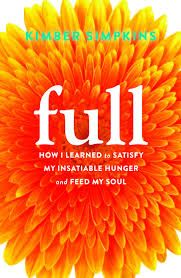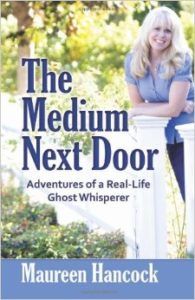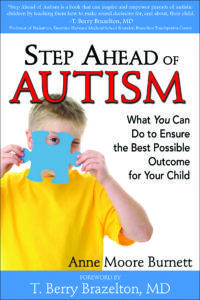 Are you at all confused about the order of finding an agent, getting a publisher and sending a book proposal? Do you wonder, “Where do I start?”
Are you at all confused about the order of finding an agent, getting a publisher and sending a book proposal? Do you wonder, “Where do I start?”
A couple of days ago, Jennifer wrote this comment:
Reading through your website and other people’s questions and ideas has been extremely helpful.
I am very new to this, however, and I’m unsure of the process/protocol in finding a publisher, editor or literary agent. Is there an order of operations as to who to reach out to first and when?”
The first question is easy to answer: First, reach out to a freelance editor if you want to polish your book proposal and/or manuscript. It’s a competitive market and that extra step is almost always crucial.
Next, if you can attract a literary agent, I always recommend querying literary agents before looking for a publisher. Agents can negotiate a better offer, plus they can time the offers to increase likelihood of the book going to auction. In addition, literary agents know the acquisitions editors personally and know what they are looking for. Here’s more about why to work with a literary agent.

The answer to the third question is a bit more complex. Jennifer is writing a memoir, so let me start there. The publishing process with memoirs tends to be a bit different from other nonfiction. In general, agents and publishers will want to see the entire memoir before signing you on. Once they like your proposal and sample chapters, you’ll need to send them the rest of your book–and you want an absolutely perfect, polished manuscript.
Don’t wait until their request, however, to polish your manuscript. Once an agent or publisher expresses interest, you want to send your polished manuscript while your book is still fresh in their minds and they are excited about it. So, with a memoir, have your manuscript fully edited before sending out a query or book proposal.
That is not so true with self-help and how-to books. With these books, it’s possible that an agent or publisher has strong ideas about changing the structure or content of your book. It may save you time to write the bulk of your book once you sign with an agent or publisher.
[bctt tweet=”Steps to Approach Literary Agents with a Book Proposal for a Memoir”]
1. Polish your entire memoir, including multiple rounds of editing–from developmental editing to line-by-line copy editing. I can help you find an editor, through my editor referral program.
2. Write a polished book proposal. I highly recommend consulting a book proposal coach to write the best proposal possible and make an airtight case for your book. If you don’t have a platform/following, you will most likely need to develop your author platform before moving forward, as this is crucial to most publishers.

3. Identify appropriate agents who represent the kind of memoir you are writing. Here are some good resources for finding the best agent:
- Publisher’s Marketplace
- PubMatch
- The Acknowledgements section of books in a similar genre or subject area to yours.
- Word of mouth from successfully published authors
- Attending writers conferences where many agents in your genre will be present, such as the San Francisco Writers Conference.
4. Query appropriate literary agents.
5. Immediately send the polished book proposal, including sample chapters, when they ask for it. Be ready to send the whole manuscript when they ask for that, as well.
Do not send a book proposal or manuscript without first querying the agent or publisher and making sure they want to see it.
[bctt tweet=”Steps to Approach Literary Agents (or Publishers) with a Book Proposal for a How-to or Self-help Book”]

1. Generally, I recommend you write a book proposal before writing the rest of the book, for the reason mentioned above. The proposal does include one or, more often, two sample chapters and outlines/summaries of all the other chapters. Polish that proposal, working with a book proposal coach or editor, to make your proposal as compelling and professional as possible. It’s a competitive arena and a polished proposal will give you an edge. It also indicates it will be less work to “take you on” than someone who makes a good case but whose sample chapters or formatting need work.
2. Identify agents who are a good match. See the resources and suggestions for memoir above.
3. If your platform is small or the potential market is narrow, or if you have tried finding an agent without success, identify appropriate publishers. Resources for identifying publishers include:
- Writer’s Market, published by Writer’s Digest
- Bookstores
- Google searches
- Searching related competing and complementary books on Amazon.com and identifying the publishers.
4. Send a Query Letter to appropriate agents (or publishers).
5. Send your book proposal to those who have said “yes!”
6. Keep writing or thinking about your book as you wait to hear back. Work on building your author platform, or reach, as well, since it will help you reach more potential readers in the long run.
7. Once you get an offer, evaluate the offers and choose the one that best meets your needs. If you do not have a literary agent, consider hiring an intellectual property attorney to read the contract and negotiate points. I often recommend a attorney who is also a literary agent. Generally, this costs about $600 and is money well spent as it will protect your intellectual property.
[bctt tweet=”When to Approach Publishers Directly Rather than Agents”]

If your platform is small, you may have more luck querying small publishing houses rather than trying for big house through a literary agent. Small houses generally pay small advances and literary agents cannot afford to spend much time on books that are unlikely to garner a big advance. In addition, if your book appeals to a narrow niche audience, you may have more luck approaching publishers directly. Recently, I have worked with quite a few clients whose books appeal to a modest-sized audience and have pitched their books directly to publishers. While it’s generally ideal to have a literary agent, this strategy is good for cases where you are unlikely do find one due to platform size or market size issues. In this link, you can read more about whether to approach agents or publishers for your book.
As mentioned above, if you get an offer from a publisher, it’s still worth having an agent or attorney negotiate the finer points of your contract.
Have a question about publishing your book, finding an agent, getting a publisher interested, how to write a book proposal or anything else? Ask your questions here and I will answer…



Great article! Thank you for the insights. I am writing a sewing book, do you think it is a better approach to contact publishing houses directly?
If it’s a book that’s unlikely to garner a significant advance, then you’re probably best off contacting publishers yourself. An agent makes around 15% of the author’s advance/royalties. So for a typical first advance of a few thousand dollars, it’s a few hundred for the agent–not enough for all the work they would have to do. If you have a large platform and the audience is large, it could be worthwhile to look for an agent.
If you do go directly to publishers and receive an offer (or more than one) then it would be good to contact an IP attorney or agent to negotiate the contract for you. Good luck!